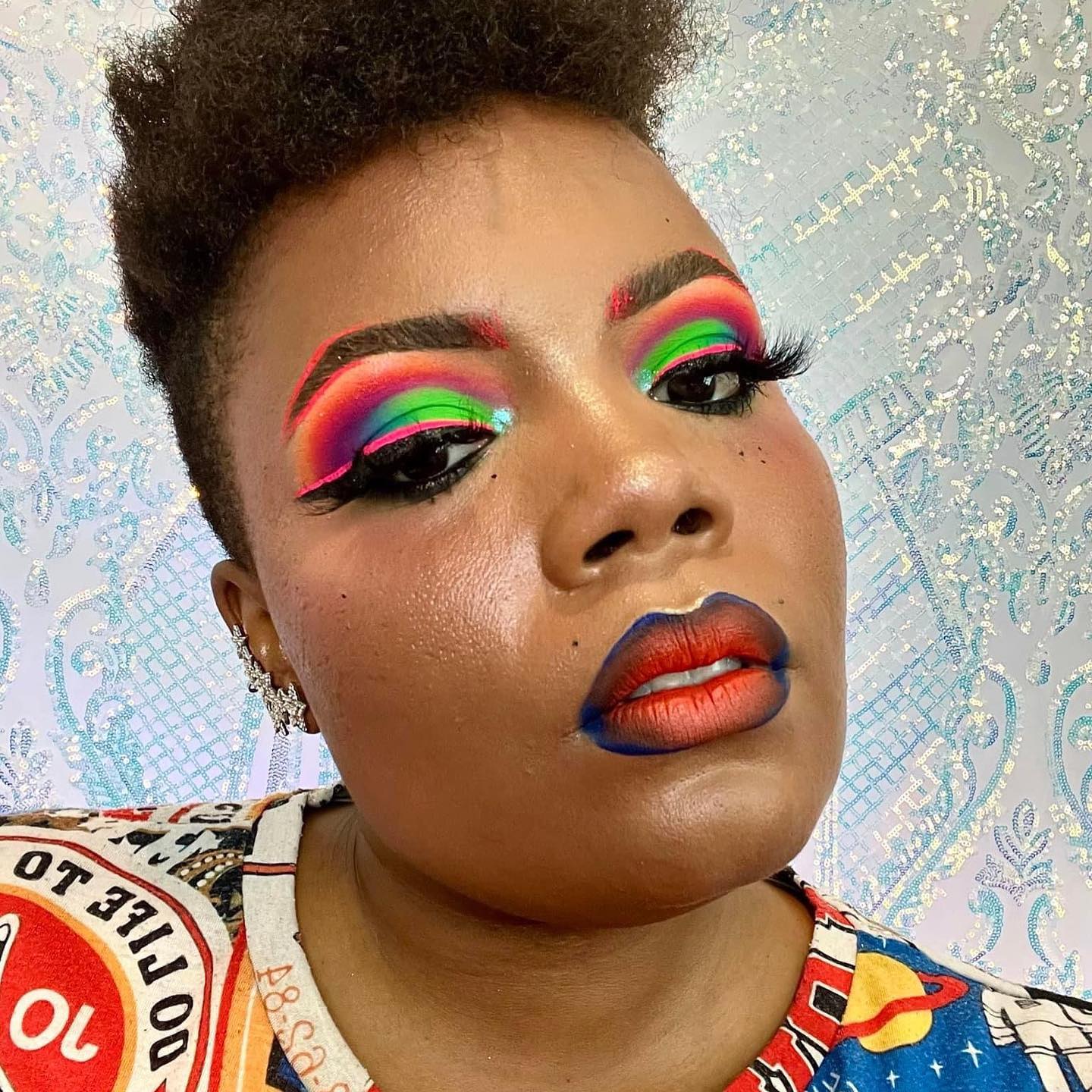Ever heard someone say "looks like" and wondered what it really means? Well, you're not alone. This simple yet powerful phrase is everywhere, from casual conversations to formal discussions. It's like the Swiss Army knife of expressions, ready to adapt to any situation. In this article, we'll dive deep into the world of "looks like" and uncover its secrets. So, buckle up because we're about to embark on an epic journey!
Nowadays, "looks like" is more than just a phrase. It's a tool that helps us interpret the world around us. Whether you're chatting with friends or analyzing data at work, "looks like" plays a crucial role in communication. This article will explore its origins, usage, and significance in modern life.
By the end of this piece, you'll have a solid understanding of how to use "looks like" effectively. Plus, we'll share some pro tips to make your conversations stand out. So, let's get started and see where this journey takes us!
- Tamara Hurwitz The Rising Star Of Modern Entertainment
- Brandy Baby The Ultimate Guide To Understanding This Trendy Spirit
What Does "Looks Like" Actually Mean?
At its core, "looks like" is an expression used to describe something based on appearances or initial observations. It's like saying, "This is what I see right now, but I might change my mind later." It's a way to express uncertainty while still making a statement.
For example, if you're looking at the sky and it's cloudy, you might say, "Looks like it's going to rain." You're not 100% sure, but the evidence suggests that rain is on the way. This phrase is perfect for situations where you want to be cautious with your words.
Why Is "Looks Like" So Popular?
There are a few reasons why "looks like" has become such a popular phrase. First, it's incredibly versatile. You can use it in almost any context, from weather forecasts to business meetings. Second, it allows you to hedge your bets. Instead of making a bold claim, you can say, "Looks like," and leave room for error.
- Katherine Hunter The Rising Star In The Entertainment Industry
- Christina Ritchie The Rising Star Whorsquos Making Waves In Hollywood
Plus, it's super easy to understand. Even if English isn't your first language, "looks like" is simple enough that anyone can grasp its meaning. That's why it's become a go-to expression for people all over the world.
Origins of the Phrase "Looks Like"
Believe it or not, "looks like" has been around for centuries. Its roots can be traced back to Old English, where similar phrases were used to describe appearances. Over time, the phrase evolved into the version we know today.
Back in the day, people relied heavily on visual cues to make decisions. For example, farmers would look at the sky and say, "Looks like a storm is coming," based on the color of the clouds. This practical use of the phrase helped it gain traction in everyday language.
How Has "Looks Like" Changed Over Time?
While the basic meaning of "looks like" has remained the same, its usage has expanded over the years. In the past, it was mostly used in informal settings. Today, you'll hear it in everything from casual conversations to high-stakes negotiations.
For instance, a CEO might say, "Looks like we're on track to meet our quarterly goals," during a board meeting. This shows how the phrase has grown to fit a wider range of contexts. It's like the phrase has grown up and learned to adapt to different environments.
Common Uses of "Looks Like" in Everyday Life
So, where do you typically hear "looks like" being used? The answer is everywhere! Here are a few examples:
- Weather Forecasts: "Looks like it's going to be a sunny day!"
- Sports: "Looks like the team is ready to win this game!"
- Business: "Looks like we need to rethink our strategy."
- Personal Life: "Looks like I'll be late for dinner."
As you can see, "looks like" is incredibly flexible. It can be used to talk about anything from the weather to major life decisions. This versatility is one of the reasons why it's so popular.
Long-Tail Keywords and Variations
While "looks like" is the main phrase, there are plenty of variations that you can use to spice up your conversations. Here are a few examples:
- Seems like: "Seems like we're heading in the right direction."
- Looks as though: "Looks as though the project is almost finished."
- Appears to be: "Appears to be a good opportunity for growth."
These variations allow you to express the same idea in different ways, keeping your conversations fresh and engaging.
Understanding the Psychology Behind "Looks Like"
There's more to "looks like" than meets the eye. From a psychological perspective, it's a way for people to process information and make sense of the world. When we say, "Looks like," we're acknowledging that our understanding might be incomplete.
This phrase also helps us manage expectations. Instead of making a definitive statement, we can say, "Looks like," and avoid the pressure of being 100% correct. It's like giving yourself a safety net in case things don't turn out as expected.
How Does "Looks Like" Affect Communication?
The impact of "looks like" on communication is significant. It encourages open-mindedness and flexibility. When you use this phrase, you're signaling to others that you're willing to consider different perspectives.
For example, in a team meeting, if someone says, "Looks like we need to change our approach," it opens the door for discussion. It's not a final decision, but rather a suggestion that invites input from others. This can lead to more collaborative and productive conversations.
Practical Tips for Using "Looks Like" Effectively
Now that you understand the basics of "looks like," let's talk about how to use it effectively. Here are a few tips to help you master this versatile phrase:
- Be Specific: Instead of saying, "Looks like things are going well," try, "Looks like the sales figures are improving."
- Use It Sparingly: While "looks like" is great, overusing it can make your statements seem uncertain. Balance is key.
- Pair It with Evidence: If you say, "Looks like the market is stabilizing," back it up with data or examples to strengthen your point.
By following these tips, you'll be able to use "looks like" in a way that enhances your communication skills. It's all about finding the right balance between confidence and caution.
Common Mistakes to Avoid
Even though "looks like" is a simple phrase, there are a few mistakes you should avoid:
- Overusing It: Saying "looks like" too often can make you seem indecisive. Stick to using it when it adds value to your statement.
- Using It as a Crutch: Don't rely on "looks like" to avoid taking a stand. If you have strong evidence, be confident in your statements.
By being mindful of these mistakes, you'll be able to use "looks like" in a way that enhances your communication rather than detracts from it.
Looks Like in Different Cultures
One of the fascinating things about "looks like" is how it's used in different cultures. While the basic meaning remains the same, the context and nuances can vary greatly. For example:
- In Western Cultures: "Looks like" is often used in casual conversations and informal settings.
- In Asian Cultures: The phrase might be used more cautiously, reflecting a preference for precision and accuracy.
This cultural diversity highlights the adaptability of "looks like" and its ability to fit into different communication styles.
How to Adapt "Looks Like" to Different Audiences
When using "looks like" with different audiences, it's important to consider their cultural background and communication preferences. Here are a few tips:
- For Formal Audiences: Pair "looks like" with evidence and data to make your statements more credible.
- For Informal Audiences: Use it freely to express your thoughts and observations.
By tailoring your use of "looks like" to your audience, you'll be able to communicate more effectively and build stronger connections.
Looks Like in the Digital Age
In today's digital world, "looks like" has taken on new meanings and uses. With the rise of social media and instant messaging, this phrase has become even more popular. People use it to comment on everything from memes to global events.
For example, on Twitter, you might see someone say, "Looks like another scandal is brewing." This shows how "looks like" has adapted to the fast-paced world of online communication.
How Has Social Media Influenced "Looks Like"?
Social media has had a significant impact on the way we use "looks like." It's become a tool for expressing opinions and sharing observations with a global audience. This has expanded its reach and made it even more relevant in modern life.
Moreover, social media platforms like Instagram and TikTok have introduced visual elements that complement the phrase. For instance, you might see a video with the caption, "Looks like a perfect day at the beach!" This combination of visuals and text enhances the impact of "looks like" in digital communication.
Conclusion: Embracing the Power of "Looks Like"
In conclusion, "looks like" is more than just a phrase. It's a powerful tool for communication that helps us navigate the complexities of modern life. By understanding its meaning, origins, and usage, you can use it effectively in a variety of contexts.
So, the next time you're unsure about something, don't hesitate to say, "Looks like." It's a simple yet effective way to express your thoughts and engage in meaningful conversations. And remember, the more you practice, the better you'll get!
Now, it's your turn. Share your thoughts in the comments below or spread the word by sharing this article with your friends. Together, let's keep the conversation going and explore the endless possibilities of "looks like"!
Table of Contents
- Lorenzo Lamas The Iconic Journey Of A Hollywood Legend
- Dee Dee Warwick The Unsung Soul Queen Who Shaped The Sound Of Motown


:max_bytes(150000):strip_icc()/11.AHintofGloss-2a688f600b444b9bbda2a97ecf0aebcd.jpg)